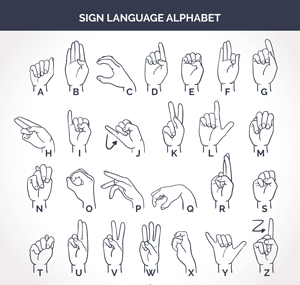

Sign language interpretation for virtual and hybrid meetings involves the use of sign language interpreters to facilitate communication between deaf or hard-of-hearing individuals and those who communicate using spoken language. As virtual meetings become more prevalent, ensuring accessibility for all participants is crucial.
Sign language interpreters play a vital role in bridging the communication gap between deaf or hard-of-hearing individuals and speakers of spoken language. They interpret spoken language into sign language and vice versa, allowing participants to understand and participate in the virtual meeting.
Virtual meetings can take place on various platforms like Zoom, Microsoft Teams, MeetView, etc. Sign language interpreters need to be familiar with the chosen platform and its features to provide effective interpretation.
American Sign Language (ASL) is used by many deaf and hard-of-hearing individuals in the United States and parts of Canada
Langue des signes québécoise (LSQ) is the term for Quebec Sign Language. LSQ is used by the deaf community in the province of Quebec, Canada
Digicast seamlessly integrates with your current sign language interpreters or can schedule certified interpreters from our trusted partner network.
Digicast only works with sign language interpreters for virtual meetings that are trained and certified professionals with expertise in both sign and spoken languages.
Digicast will manage specific features for accessibility, such as spotlighting the interpreter’s video feed, which ensures that the interpreter is visible during the meeting.
Digicast ensures coordination between meeting organizers, participants, and interpreters for a smooth experience. Pre-meeting briefings are held to help the interpreters understand the agenda, terminology, and any specific details related to the content that will be discussed.
Digicast will advise on the optimal layout for the interpreter’s video feed.
Digicast is an event technology company, specializing in providing technological solutions and services to enhance various aspects of events and gatherings. Digicast leverages technology to streamline event planning, improve attendee experiences, and facilitate event management